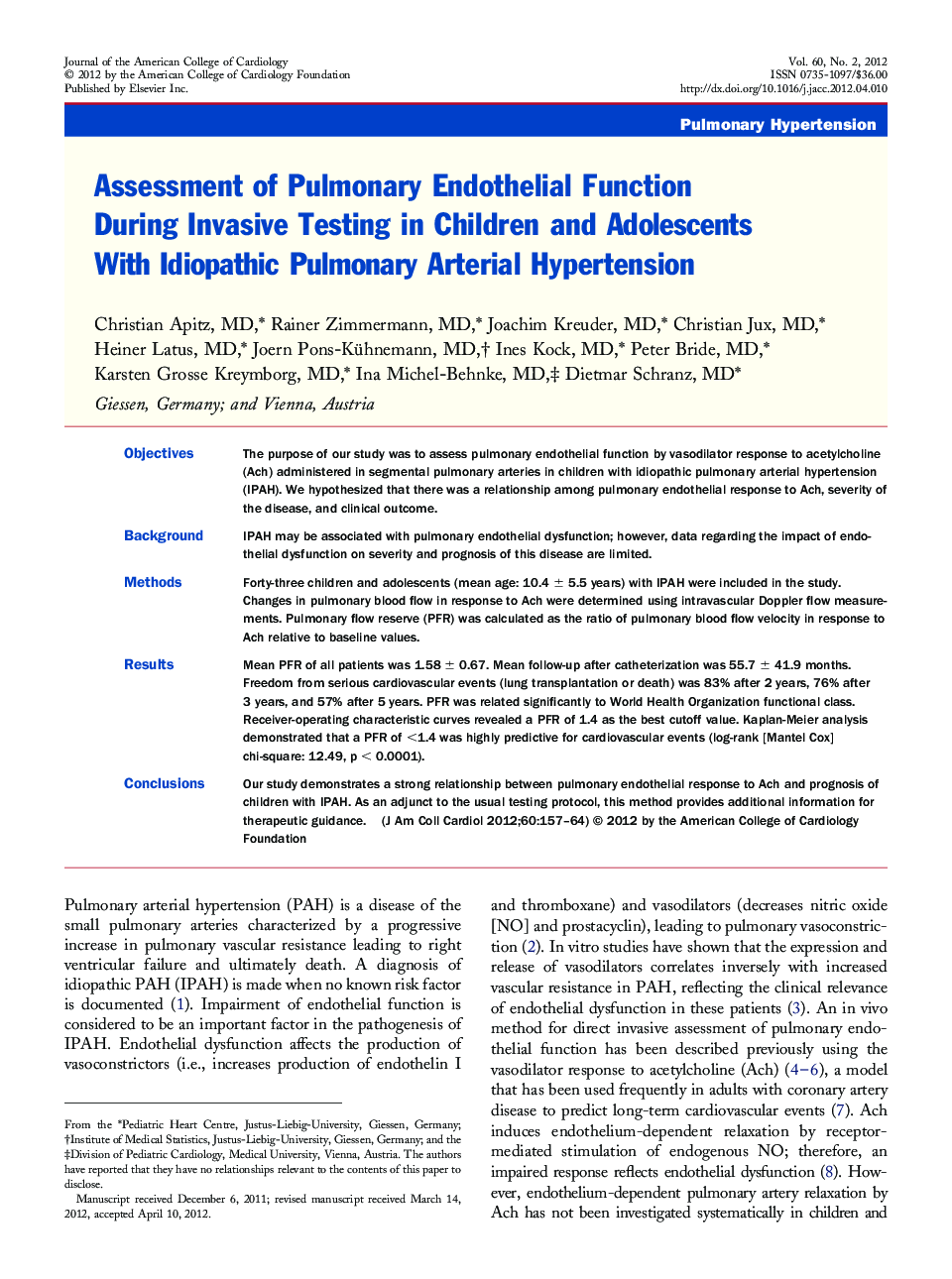| Article ID | Journal | Published Year | Pages | File Type |
|---|---|---|---|---|
| 2947135 | Journal of the American College of Cardiology | 2012 | 8 Pages |
ObjectivesThe purpose of our study was to assess pulmonary endothelial function by vasodilator response to acetylcholine (Ach) administered in segmental pulmonary arteries in children with idiopathic pulmonary arterial hypertension (IPAH). We hypothesized that there was a relationship among pulmonary endothelial response to Ach, severity of the disease, and clinical outcome.BackgroundIPAH may be associated with pulmonary endothelial dysfunction; however, data regarding the impact of endothelial dysfunction on severity and prognosis of this disease are limited.MethodsForty-three children and adolescents (mean age: 10.4 ± 5.5 years) with IPAH were included in the study. Changes in pulmonary blood flow in response to Ach were determined using intravascular Doppler flow measurements. Pulmonary flow reserve (PFR) was calculated as the ratio of pulmonary blood flow velocity in response to Ach relative to baseline values.ResultsMean PFR of all patients was 1.58 ± 0.67. Mean follow-up after catheterization was 55.7 ± 41.9 months. Freedom from serious cardiovascular events (lung transplantation or death) was 83% after 2 years, 76% after 3 years, and 57% after 5 years. PFR was related significantly to World Health Organization functional class. Receiver-operating characteristic curves revealed a PFR of 1.4 as the best cutoff value. Kaplan-Meier analysis demonstrated that a PFR of <1.4 was highly predictive for cardiovascular events (log-rank [Mantel Cox] chi-square: 12.49, p < 0.0001).ConclusionsOur study demonstrates a strong relationship between pulmonary endothelial response to Ach and prognosis of children with IPAH. As an adjunct to the usual testing protocol, this method provides additional information for therapeutic guidance.
